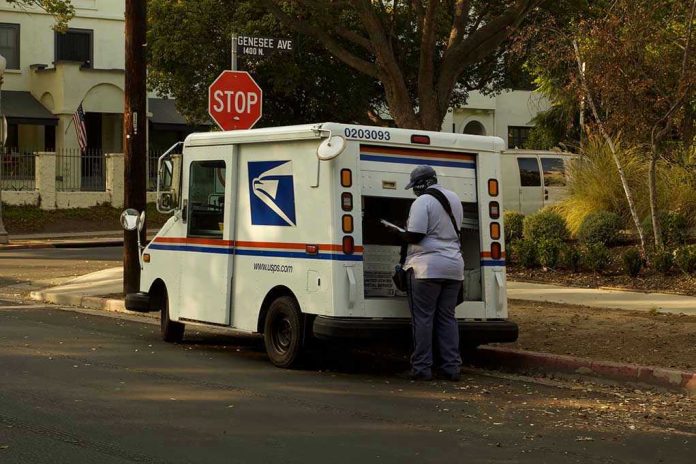
Missouri town residents face chaos as a breakdown in postal services leaves them without essential mail deliveries.
Story Snapshot
- Residents of a Missouri town experience severe postal disruptions, affecting critical mail deliveries.
- The U.S. Postal Service’s regional optimization plan is blamed for the failures.
- Lawmaker Senator Josh Hawley demands federal audits to address ongoing postal issues.
- Service breakdowns highlight vulnerabilities in rural mail delivery systems.
Missouri Town’s Postal Breakdown
Residents of a rural Missouri town have been struggling with a near-total breakdown of postal services, severely affecting their ability to receive essential mail such as prescription medications and Social Security checks. This disruption, described by locals as “genuinely insane,” has persisted over the past year, with reports of sporadic or non-existent mail delivery. The issue underscores the critical role of reliable postal services in rural communities, where alternatives are often limited.
MO town has no functional post office, struggles to get mail | Kansas City Star https://t.co/hipHXuKttb
— Alliance of Nonprofit Mailers (@NonprofitMailer) August 1, 2025
The crisis traces back to 2024 when the U.S. Postal Service implemented a “Regional Transportation Optimization” plan. This initiative centralized mail processing in larger cities like Kansas City and St. Louis, resulting in reduced pickups and deliveries at local post offices. Severe weather events have further exacerbated the problem, leaving residents in a lurch, particularly those dependent on mail for life-sustaining medications and financial benefits.
Stakeholders and Response
This situation involves several key stakeholders, including the affected residents, local healthcare providers, and the U.S. Postal Service itself. Missouri’s congressional delegation, led by Senator Josh Hawley, has been vocal in advocating for federal intervention. They have repeatedly called for audits and investigations into the USPS’s performance in the region, emphasizing the need for accountability and urgent corrective measures.
Local healthcare providers express grave concerns about patient safety due to the delays in prescription deliveries. Meanwhile, residents remain frustrated, feeling powerless but hopeful that their elected officials will effect change. The USPS, on the other hand, faces criticism for prioritizing cost-cutting measures over maintaining essential services in rural areas.
Current Developments and Implications
As of early 2025, the postal service disruptions remain unresolved, with no significant improvements reported. Lawmakers, including Senator Hawley, continue to press for a targeted audit of USPS facilities in the region to address the ongoing hardships faced by residents. They have demanded a response from the USPS Inspector General by mid-April 2025.
In the short term, the disruptions have caused immediate challenges for residents, including delayed medications, late bill payments, and interrupted access to government benefits. Long-term implications include potential erosion of trust in the USPS, increased costs for residents seeking alternative delivery options, and potential rural depopulation as communities struggle to maintain services.
Broader Impacts and Expert Opinions
The postal service failures in this Missouri town highlight systemic vulnerabilities in rural mail delivery across the nation. Experts argue that while regional consolidation might improve efficiency, it disproportionately harms rural communities. Healthcare professionals warn of the severe risks to patient safety, while policy experts criticize the USPS’s cost-cutting measures as detrimental to service quality.
With no functional postal service, Missouri town struggles to get mail: ‘Genuinely insane’https://t.co/vOXzPoRm6u
For more great content like this subscribe to the The Kansas City Star app here: https://t.co/TkgiAloFXK
— Keith Chrostowski (@keithc3) August 2, 2025
The ongoing crisis has sparked broader discussions on the need for targeted solutions rather than blanket cost reductions for federal services in rural areas. As the situation continues to unfold, it remains a flashpoint for criticism of federal agencies and may influence future policy decisions and elections at both local and national levels.













